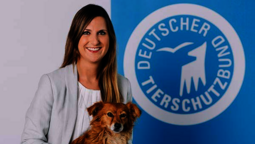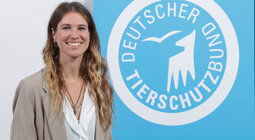The German Animal Welfare Federation welcomes Federal Agriculture Minister Cem Özdemir's proposal to ban the private keeping of certain exotic animal species.
“We fully support Minister Özdemir's proposal to define those animal species that can be kept without hesitation by means of a positive list at EU level,” says Thomas Schröder, President of the German Animal Welfare Federation. A positive list with only those animal species that can actually be kept would be much shorter and clearer than the existing negative lists. Animal species that have not been traded to date could no longer simply enter the German market. In addition, the authorities would be able to intervene more quickly and effectively as they would be able to acquire specialist knowledge about the permitted animal species more easily and understand the regulations more easily.
Schröder calls on the Minister not to wait for the other EU countries, but to lead the way at national level, as other EU member states have already done. A legal opinion commissioned by the German Animal Welfare Federation and other associations has clearly shown that national positive lists are not only legally permissible, but also necessary on the basis of the precautionary principle and the national objective of animal welfare: “An EU-wide positive list does not release the German legislator from its responsibility at national level. We need a corresponding regulation in the German Animal Welfare Act.”
In the opinion of the German Animal Welfare Federation, wild animals should not be allowed to be kept in private households. “A positive list should only contain those animal species whose keeping raises no objections from an animal, nature or species protection perspective or for reasons of public safety and health protection,” emphasizes Schröder. The President of the German Animal Welfare Federation also refers to the major problems caused to animal shelters by the growing number of exotic animals being handed in: “Many people can no longer afford the energy costs of keeping exotic animals and send them to animal shelters. The trade in wild animals is also a species conservation problem, which is why the need for action is all the more urgent.”
Note to editors: As part of its current campaign “Now more animal welfare!”, the German Animal Welfare Federation provides information on which announcements from the coalition agreement have already been addressed by the coalition government and where there are only empty promises so far: www.jetzt-mehr-tierschutz.de
(correction)






